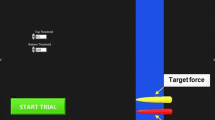Abstract.
To ascertain whether decrements in knee extensor muscle strength persist years after a traumatic ligamentous or meniscal knee injury, with reference to (1) the type of muscle activity, (2) the dominance of injury, and (3) the time since injury, 36 subjects with previous unilateral knee injuries were assessed. Peak voluntary quadriceps muscle strength was measured using the KinCom 500H dynamometer during isometric, concentric (30°·s–1 and 120°·s–1) and eccentric contractions (30·s–1), and the findings for each type of contraction were compared. Significant differences in quadriceps muscle strength were seen between (1) the injured and uninjured limbs during maximal voluntary isometric (P=0.0003), concentric (P<0.0001) and eccentric (P<0.0001) contractions, and (2) the isometric and concentric decrements (P=0.004), and the isometric and eccentric decrements (P=0.012) within the same injured limb. The decrements in eccentric strength were significantly greater if they affected the dominant rather than the non-dominant limb (P=0.0186). No relationship was seen between the time since injury and the degree of isometric or dynamic decrement. Deficits in quadriceps muscle strength remained for a long time after traumatic knee injury, with exercise levels rarely returning to the previously uninjured state. The degree of decrement in muscle strength was dependent upon the type of muscle activity, with concentric and eccentric activity showing greater decrements than those seen with isometric activity. Deficits in the type of activity varied widely in the same individual, and eccentric decrements were significantly worse following dominant knee injuries. Possible explanations for these findings and the implications for rehabilitation following knee injury are discussed.
Similar content being viewed by others
Author information
Authors and Affiliations
Additional information
Electronic Publication
Rights and permissions
About this article
Cite this article
Holder-Powell, H.M., Di Matteo, G. & Rutherford, O.M. Do knee injuries have long-term consequences for isometric and dynamic muscle strength?. Eur J Appl Physiol 85, 310–316 (2001). https://doi.org/10.1007/s004210100474
Accepted:
Issue Date:
DOI: https://doi.org/10.1007/s004210100474




